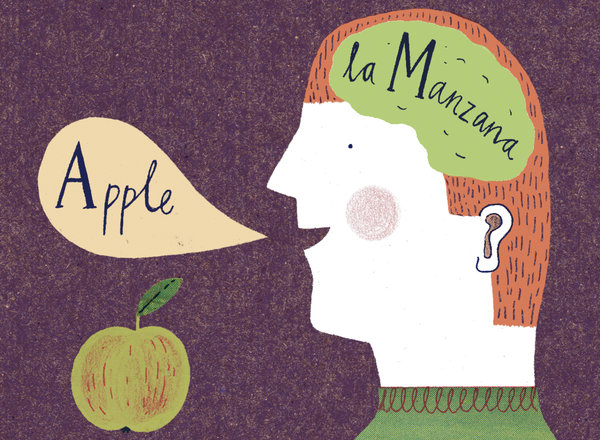“I took French and Spanish in High School, but I don’t remember any of it,” is often a statement I get as soon as I share that I speak French fluently. Growing up in a bilingual family, it is common to speak at least two other languages. While the motivation to learn another language is largely based of the close proximities and cultural influences from other European countries and immigrants from all over the world. By intuition and adaptation to society we find a satisfying way of becoming self-determined and well-balanced individuals. Being bilingual has the same effect. In fact it is one of the strongest influences on exercising and making the brain strong. Though, I’ve always wondered how cognitively strong? And how the impacts of bilingualism aid than just cognitive ability? Recent evidence from an article in the Annals of Neurology helped me find the answer to a similar question of theirs, does bilingualism influence cognitive aging?
The scientists behind Annals of Neurology study formed off a variety of confounds that I found tackled what these studies couldn’t. First, being both Neuropsychoelogia January 2007’s and Neurology November 2010‘s evidence towards bilingualism delaying the onset of dementia. Their main limitation was that their putative causal variable (x variable) wasn’t manipulated. Therefore, this gives reason to worry about third variables, such as ethnic/environmental background differences, immigration, education, etc. At this same time of Neurology‘s, another study from Alzheimer Disease & Associated Disorders June 2010’s went ahead and replicated Neuropsycholegia‘s, differing in setting and larger sample size. Another battle (argument) of the scientists had begun, surely no surprise. They were able to counter argue bilingualism’s cognitive aging influence once at diagnosis or symptom onset of Alzheimers is of “no significant benefit”. While, the mirroring results were of bilingualism delaying the “diagnosis of Alzheimer disease be almost 5 years.” However, these were only in the immigrant group, still confounding.
Few years past and Neurology November 2013‘s study replicates their previous one, now more in depth into another confound; reverse causality. By examining the number of languages spoken, education, occupation, and other potentially influential variables that would lead this to being reversibly causal. Overall, through reproduction of their previous tests that were now larger and more reliable, made their conclusion of delayed onset of dementia in bilinguals a trend of the same effect. Plus, being the first to find that “bilingual advantage in those who are illiterate” shows that education isn’t a sufficient reason to whether or not being a bilingual is an advantage. Another gateway to overcoming these confounds came from the follow-up cohort designed study, Lothian Birth Cohort 1936. It’s important to realize that this finally gave the ability to examine bilingualism’s influences on cognitive aging between childhood (age 11) and old age (age 70). The Cohort profile discusses their “rich data” (a.k.a. data that’s been improved) and follow-ups to concluding social and biological factors are strong determinants of cognitive aging.
While, Annals of Neurology really proves to be the master of peer review in many of these scientists’ arguments, they had their own faults. As a questionnaire study of few bilingual participants before the age of 11, there’s reason to apply this realistically, no? There are many people who aren’t bilinguals, or learn a second language, till later in life through school, work, moving, marriage, etc. Note that many simply can never have “native-like perfection”. I have to admit that study after study researched only raised more questions, like whether actively speaking, understanding, or writing as a bilingual has the most positive effect on cognitive aging?
The principle this research claims that there is an influence on cognitive aging due to bilingualism, “the ability to speak two languages”. I see many of these findings to be useful and meaningful towards future studies bilingualism causal of cognitive decline prevention.




This blog is very interesting but brought up a lot of different questions in my mind. I started thinking about mental disease as opposed to brain aging. Many creative people throughout history, bilingual or not, have been diagnosed with mental disease. This article from Psychology Today talks about how scientists are not convinced on a connection between the two. I wonder if it is the matter of how someone speaks the words or the cognitive processes that happen in choosing the language or words to speak? Very interesting topic!